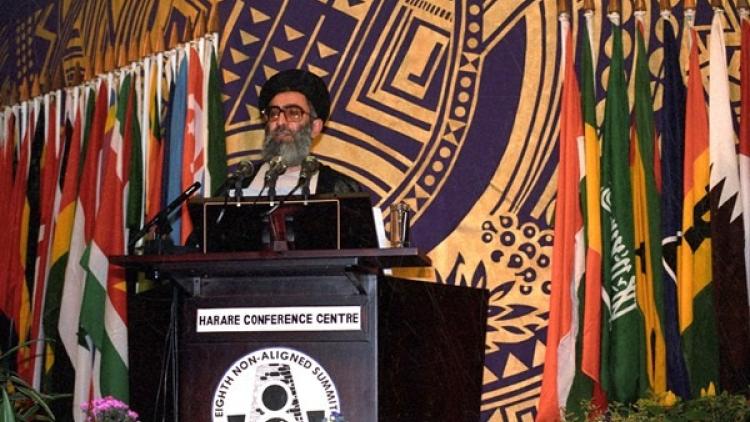The Untold Story of the Golan Heights: Occupation, Colonisation and Jawlani Resistance

Key information
- Date
- Time
-
5:30 pm to 7:00 pm
- Venue
- SOAS Main Building
- Room
- R201
About this event
In 1967 Israel occupied the western section of Syria's Golan Heights, expelling 130,000 residents and leaving only a few thousand Arab inhabitants clustered in several villages.
Sometimes characterised as the 'forgotten occupation', the western Golan Heights have been transformed by Israeli colonisation, including the appropriation of land and water resources, economic development and extensive military use.
The Untold Story of the Golan Heights is the first book in English on Arab politics and culture in the occupied Golan Heights. It focuses on an indigenous community, known as the Jawlanis, notably their experience of everyday occupation and their resistance to settler colonisation. Chapters in the book cover the politics of the governed, the politics of Jawlani sculpture, the role of Israeli education policies and the history of agroecological changes.
To show the ways in which the regime of Israeli rule has been contested, there are contributions on the six-month strike of 1982, youth mobilisation in the occupied Golan, Palestinian solidarity movements, Jawlani art and writing, Jawlani counter-mapping, and the hidden history of an Israeli ski resort. Rich in ethnographic detail and interdisciplinary, the book is unique in bringing together Jawlani, Palestinian and UK researchers.
About the speakers
Michael Mason is Director of the Middle East Centre at the London School of Economics and Political Science, where he is also Associate Professor in Environmental Geography. He publishes on environmental politics and security, with a regional focus on Western Asia.
Muna Dajani holds a PhD from the Department of Geography and Environment at the London School of Economics and Political Science. She publishes on topics relating to water history, climate change and environmental politics, and has contributed to numerous studies on the topic of hydropolitics in the Jordan River Basin.
Registration
This event will take place in-person and will not be recorded. Seating is limited and is on a first-come, first-served basis.
- Chair: Nimer Sultany (SOAS)
- Organiser: SOAS Middle East Institute and the Centre for Palestine Studies, SOAS
- Contact email: smei@soas.ac.uk


